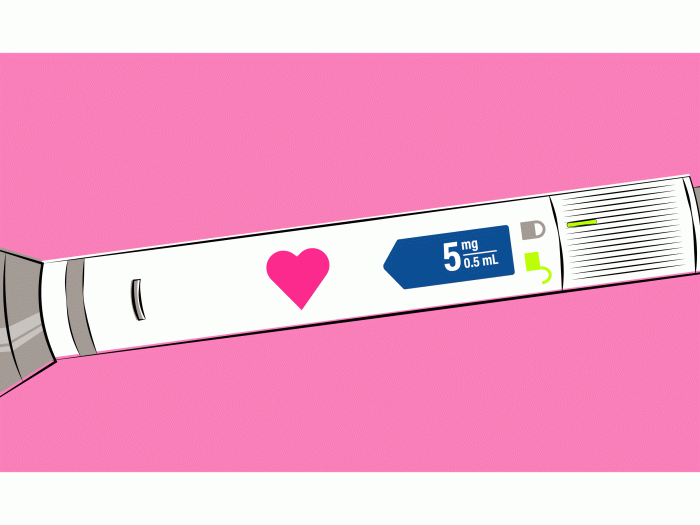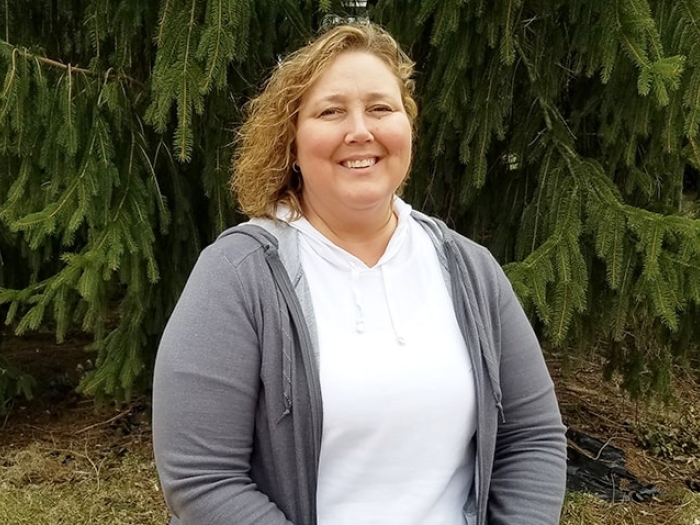One patient details her success story losing weight through this individualized approach
5:00 AM
Author |

Losing weight can feel like a constant uphill battle for many people.
However, patients like Marsha Burks found success with the Weight Navigation Program at Michigan Medicine, a program aiming to make weight loss easier with structured, individualized support.
Burks had a strong desire to take control of improving her health since she was concerned about developing complications like diabetes and high blood pressure.
However, she became discouraged by her previous attempts to lose weight.
She was frustrated that traditional weight loss advice – like simply moving more and eating less without any personalized recommendations – wasn't working for her.
The program helped me achieve not only scale victories and reaching my realistic weight goal we set together, but also non-scale victories.”
-Marsha Burks, patient
Things changed when obesity specialist Patricia Karina Arizaca-Dileo, M.D., started working with her through the Weight Navigation Program.
“From the beginning, I felt heard and understood,” Burks said.
“It was a game changer. The program helped me achieve not only scale victories, reaching my realistic weight goal we set together, but also non-scale victories.”
How the Weight Navigation Program works
What sets the program apart is that it's intentionally integrated into the primary care setting and helps align patients with weight-loss interventions that are tailored to patient needs and preferences.
Eligible patients are referred to the program by their primary care provider.
A typical first appointment includes a weight focus visit with a primary care physician trained in obesity medicine.
This will include a review of health history, a blood test, consideration of weight-related tests and review of research opportunities.
Patients can discuss various options for what they want to implement on their journey, including lifestyle, activity, and diet changes, bariatric surgery or medication.
“Our goal is to empower our patients in the program to develop a healthier relationship with food,” Arizaca-Dileo said.
“We work with patients to create personalized plans that are realistic for the lifestyle patients want to achieve.”
In Burks’ case, her participation in the program largely involved consistent meetings with her providers, including a registered dietician.
She and her team learned more about her health and established dietary patterns appropriate for her nutritional needs.
Challenges and overcoming obstacles
Weight loss journeys are rarely linear, and everyone’s story is different.
Many patients experience occasional setbacks.
Burks herself struggled when she hit a plateau in her progress.
However, she got herself back on track with her team's help.
Burks, now proud of her hard work that led to her exceeding her own expectations, emphasizes the importance of self-motivation, trusting the program and following professional guidance.
“You must be dedicated to overcome these difficult challenges and trust in the doctor and yourself to get back on track,” she said.
Burks was consistently working to combat “negative self-talk” and kept a journal of her progress to stay motivated.
“I can really get myself down about my weight and how I look,” she said.
“I just tried to be conscious of when I would catch myself going down these negative paths in my head and try to stop myself.”
Burks also opted to take group classes with other patients as part of her participation in the program, which helped immensely.
“Knowing I wasn’t alone in my struggles and being able to celebrate successes with others who understood was incredibly motivating,” she said.
Longterm success
Today, Burks has lost 92 pounds.
She’s seen a positive shift in her health and wellbeing, having made achievements on and off the scale.
Though she has some fears of regaining weight, Burks knows she has the necessary tools to keep up her healthy lifestyle and can turn to her providers when she needs a boost.
“The feeling I get when I can walk into any regular clothes store and come out with clothes that actually fit is amazing. My health has improved so much. I am so strong now and have so much energy,” Burks said.
“I feel like I can take on anything. I look back at things that I used to do with 92lbs of extra weight and it’s hard to believe that I was even functioning at that weight and walking around. My body, my joints and my heart are thanking me.”
Despite the challenges that may come with maintaining healthy, longterm weight loss, Burks says the program is worth the work as it equips patients with the tools they need for continued success.
“The best part? I don’t feel like I’m constantly depriving myself,” Burks said.
“Now I can maintain a healthy weight for long term. The program has taught me how to make healthy choices that fit into my life, not the other way around.”
Burks’ story is just one of many that has emerged from the Weight Navigation Program. Those interested in the program should speak to their primary care physicians.
Sign up for Health Lab newsletters today. Get medical tips from top experts and learn about new scientific discoveries every week by subscribing to Health Lab’s two newsletters, Health & Wellness and Research & Innovation.
Sign up for the Health Lab Podcast: Add us on Spotify, Apple Podcasts or wherever you get you listen to your favorite shows.

Explore a variety of health care news & stories by visiting the Health Lab home page for more articles.

Department of Communication at Michigan Medicine
Want top health & research news weekly? Sign up for Health Lab’s newsletters today!





